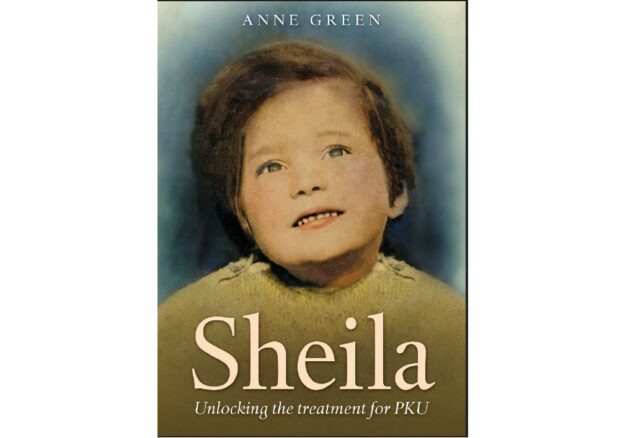
Early last year, we published a blog post celebrating 50 years of newborn blood spot screening. In that post, we introduced you to Sheila Jones. Sheila was born in Birmingham in 1949, which was before the beginning of newborn screening. At 17 months old, she was diagnosed with phenylketonuria (PKU).
PKU
PKU is an inherited metabolic disorder that prevents the normal breakdown of phenylalanine, an amino acid found in food and milk. If not treated, this can lead to a toxic build-up of phenylalanine in the blood, which can cause severe brain damage.
About 1 in 10,000 babies born in the UK has PKU.
Since 1969, the UK has been screening newborn babies for this condition. In 2017 to 2018, more than 750,000 babies were screened for PKU in the UK, and more than 100 babies were screen-positive and referred for specialist care.
Sheila Jones
In 1951, when Sheila was diagnosed, PKU was an untreatable disorder that caused severe learning disabilities. Most affected individuals required long-term care from an early age. Although the possibility of treatment with a diet had been suggested, no such treatment existed.
Sheila’s mother, Mary, was a courageous and determined lady who persuaded a team of pioneering doctors at Birmingham Children’s Hospital to find some treatment for her daughter. They undertook the challenge of producing a phenylalanine-free product for Sheila to be given as her main protein feed. This special mixture, which was the first protein substitute for PKU, was prepared from milk protein using chemical methods in the hospital laboratory.
And so, Sheila became the first child in the world to receive dietary treatment for PKU. After several months on the diet, Sheila’s condition and development improved. This success encouraged clinicians to try the diet for other children with PKU, and ultimately led to the commercial production of dietary products. By the late 1950s, it had become clear that early diagnosis and treatment could greatly improve the prognosis for babies with PKU, and this paved the way for the introduction of universal newborn screening in the UK and across the world. The type of dietary treatment that Sheila received is still the standard treatment for PKU today.
Unfortunately for Sheila, the special feed was discontinued after 4 years and her development sadly worsened. In 1959, she was admitted to Chelmsley Hospital, a mental health unit in Birmingham, where she lived until her death in 1999.
Telling Sheila's story
In 1971, 20 years after Sheila was diagnosed with PKU, Anne Green began her career as a biochemist at Birmingham Children’s Hospital. After getting involved in screening, Anne developed a strong desire to find out more about Sheila’s life and to ensure her role in history is not forgotten.
Anne decided to write a book to tell Sheila’s story. She has spent the last few years researching Sheila’s life with the help of Sheila’s brothers and those who cared for Sheila. The story is a powerful account of a family and 3 pioneering doctors and explains how these events led to the introduction of newborn screening and treatment for PKU in the UK and across the world.
You can listen to Anne talking about Sheila's life via a YouTube podcast and a lecture presentation.
PHE Screening blog
The PHE Screening blog provides up to date news from all NHS screening programmes. You can register to receive updates direct to your inbox, so there’s no need to keep checking for new blogs. If you have any questions about this blog article, or about population screening in England, please contact the PHE screening helpdesk.